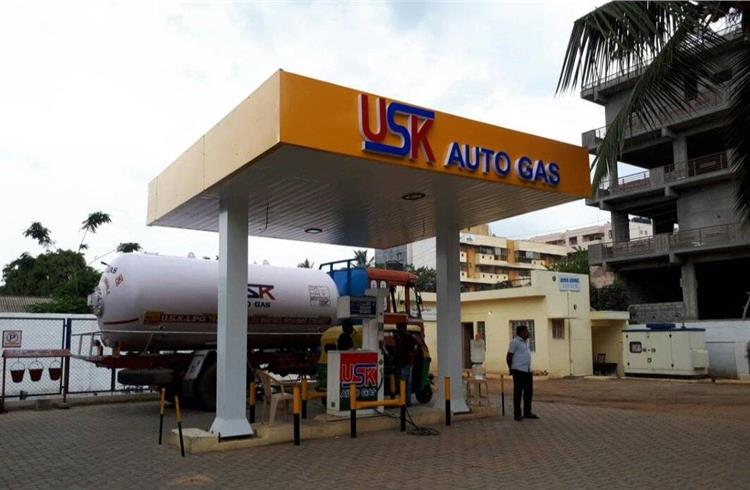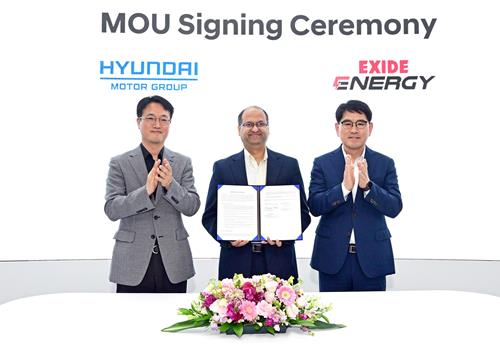Type approval norms roadblock to CGD and adoption of alternate fuels in India, says IAC
The Auto body says the Prime Minister’s ambitious City Gas Distribution (CGD) project and cleaner fuel push is being stalled by the lack of conversion providers in the country.
The type approval norms in India, for retrofitting vehicles to gaseous fuels is in complete variance with established global norms and regulations, says Indian Auto LPG Coalition (IAC), the nodal body for the promotion of Auto LPG in the country.
The Auto body says the Prime Minister’s ambitious City Gas Distribution (CGD) project and cleaner fuel push is being stalled by the lack of conversion providers in the country, owing to draconian regulations, not seen either in the Europe or the United States.
IAC says the minister for Petroleum and Natural Gas , Dharmendra Pradhan has also highlighted the issue in Lok Sabha, in response to a parliament question, stating that the ministry has also written to Ministry of Road Transport & Highways (MoRTH) on this issue. Furthermore, when it comes to the rollout of cleaner fuels, India faces an uphill task for widespread adoption of cleaner fuels, primarily on account of an archaic and hugely detrimental MoRTH Type approval norm. The norm has encouraged illegal operators to thrive and acts as a severe deterrent for credible players.
According to the LPG coalition MoRTH norms in India require that an extremely cost prohibitive Type Approvals for Auto LPG and CNG conversions that must be renewed every three years. This practice is in complete variance of established global norms in vogue for the last several decades.
Samuel Maubanc, managing director, Liquid Gas Europe, the European LPG Association, said: “Approval of an LPG retrofit system means the approval of the type of retrofit system to be installed in motor vehicles for the use of LPG. When approved, it can be placed on the market and can be sold for an unlimited amount of time, unless requirements change. This is a key principle of European law and it applies to all types of products, not only LPG components.”
“However, this is not the case for India. Both the LPG and CNG conversion industry have been struggling with this norm, which has no precedent either in the EU or the US. While Indian automotive regulations are in sync with the EU norms, this has been a major departure from the EU norms,” added Maubanc.

Suyash Gupta, Director General, Indian Auto LPG Coalition, (pictured above) said: “Companies in India have to get their type approvals renewed every three years. The total costs for a company for obtaining type approval renewal for the LPG and CNG range with model approvals is almost Rs 4 crore each time. The punishing rules have resulted in almost all credible LPG Type approval holders not renewing their certifications. The damaging effect of this detrimental requirement has been that the number of active players in the retro-fitment market nationwide has come down to mere four-five as compared to almost over 30 plus till a few years back. Such type approval validity requirements are unheard of anywhere in the world, including in Europe and the US, where one-time approvals are granted and hold good until there is any change in the component. Now, the last present players in the Auto LPG and CNG retro fitment Industry are also looking to move out.”
Gupta further said it is necessary to understand that the underlying fundamental behind framing any regulation is to maintain optimal standards, in line with accepted global practices and at the same time, act as an enabler towards achieving the larger national objectives. Revenue generation for test agencies simply cannot be the intent to frame any regulation, which 'would defeat its very purpose'.
“As the industry body, we have made several representations and sent letters to the Ministry of Road Transport asking for laws to be brought in line with European norms where the Type Approval Validity is perpetual. Unfortunately, there has been little movement on this front, to the detriment of the auto LPG and CNG retro-fitment sector,” said Gupta.
City Gas Distribution project to be impacted
IAC highlights that it was notable to mention that if there are no conversions, the ambitious City Gas Distribution (CGD) project launched by the prime minister recently will never be able to take off.
The requirement of re-certification of the same vehicle, with the same components, every three years has not only severely impacted the growth of the industry but has also encouraged the growth of spurious, illegal conversion kits. Correcting this anomalous requirement will ensure more players jumping in and hence easier availability of the approved conversion kits. With negligible conversions happening in the country now, fuel retailers have little incentive to set up more stations for gaseous fuels.
Auto LPG finds global acceptability
IAC says that in spite a build up towards EV, gaseous fuels are fast gaining traction globally. The coalition says that the gaseous fuels are fast gaining traction globally, while push for CNG has been mainly in India, Auto LPG is has found more acceptability on account of its ease of use and is fast gaining traction globally.
In a global context, Auto LPG is claimed to be the third most commonly used automotive fuel after Petrol and Diesel with over 27 million vehicles across 70 countries running on it. Auto LPG is available at around 1,200 outlets in India, with PSUs like IOC, HPC and BPC being key marketers along with several leading private LPG companies like Total, Reliance,and more.
IAC further says that the fuel was available in more than 500 cities in India, while sales of the gaseous fuel touched 400,000 tonnes in FY 2018-19, which was only about 10 percent of the sales compared to a nation like South Korea, which does 3.8 million tonnes of Auto LPG Sales annually.
“An immediate intervention from the government is necessary if gaseous fuels in India, under CGD or otherwise, can be a tangible alternative, else we will continue to be headlines of 14 of world’s top 15 polluted cities being in India. Even with factoring in technology disruptions, EVs are still several years away. Gaseous fuels, particularly Auto LPG are a low hanging fruit and would play the role of a perfect bridge for the next 14-15 years,” concluded Gupta.
Also read: Govt lists out steps taken to promote EVs in India
RELATED ARTICLES
IIT Bombay inaugurates Arun Firodia Research Floor
IIT Bombay, one of India’s top technical and research institutions, honours Kinetic Group chairman Dr Arun Firodia, one ...
Maruti Suzuki expands capacity at Manesar plant by additional 100,000 units
New assembly line at Plant A expands total manufacturing capacity at the Manesar plants to 900,000 units per annum. Alon...
Hyundai and Kia partner Exide Energy to produce LFP batteries in India
Partnership with Exide Energy enables Hyundai Motor and Kia to equip future EVs in the Indian market with locally produc...





 By Autocar Pro News Desk
By Autocar Pro News Desk
 10 Jan 2019
10 Jan 2019
 5468 Views
5468 Views









